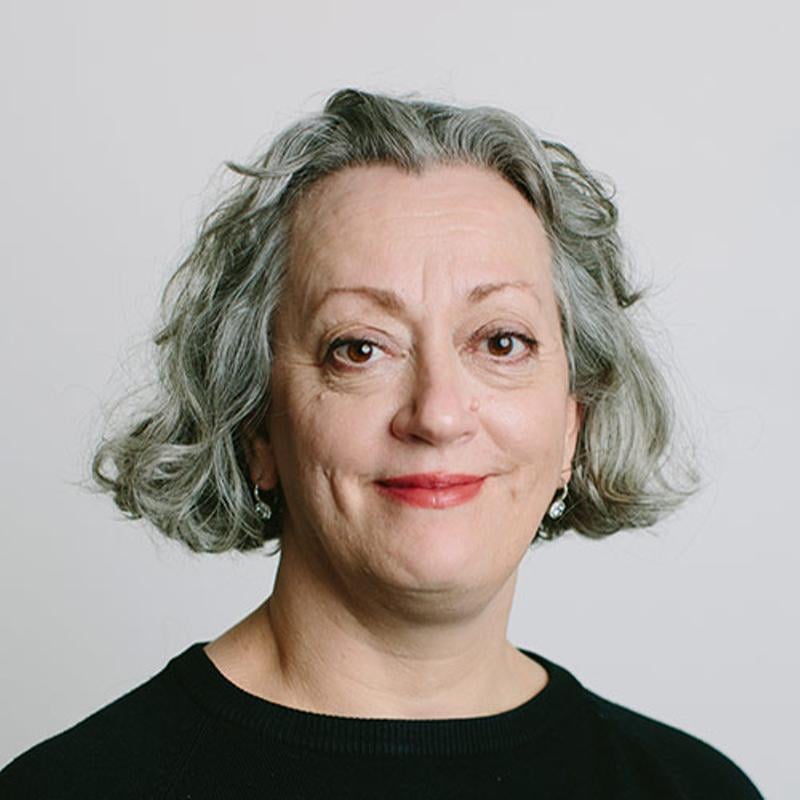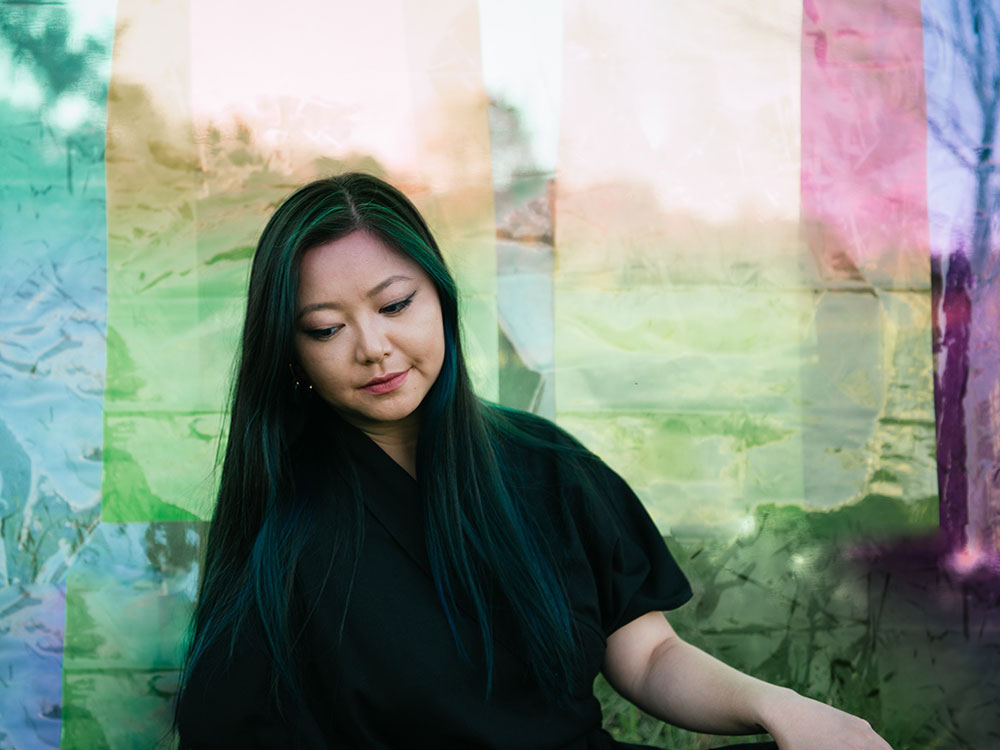If the idea of going on stage and performing the most challenging musical pieces ever written terrifies you, imagine doing this since you were a very small child.
Raised in Vancouver, Vicky Chow started piano at the tender age of five. She made her debut with the Vancouver Symphony Orchestra when she was 10. She is often referred to as a “monster pianist,” referring to her outsized, superhuman abilities. Since her pint-sized debut, Chow has carved out an extraordinary career as a soloist and as an interpreter of contemporary composers including John Adams, Louis Andriessen, Steve Reich and Terry Riley, to name just a few. She is now based in Brooklyn and is a mentor at the prestigious Juilliard School, where she earned two degrees in music. She has become that rarest of things: a new music super duper star.
On March 28, Chow returns to her hometown to perform Philip Glass’s Piano Etudes, Book 1 in Music on Main’s current season. It’s a homecoming in a couple of different ways. Chow was the first artist in residence at Music on Main in 2018, and the upcoming performance in Vancouver will be the first solo show that she has performed for a period of time. On the phone from Brooklyn, she says, “It still feels like home, when I visit Vancouver.”
With a thorough grounding in the canon of classical music, Chow is a creature of two worlds. After starting piano as a child, she continued her studies at Juilliard. While helping out a friend at school, Chow was introduced to contemporary composition and found her niche. The freedom to actively collaborate with a living composer, as opposed to someone who has been dead for a few hundred years, proved part of the attraction. Glass is a case in point.
Glass initially wrote the Etudes as a means of improving his skills as a pianist. Over the years, the studies have grown to double digits (Books one and two each contain 10 different pieces). As Chow explains, “they’re technical studies, but they’re very introspective and challenging in their repetitiveness.” They met when in 2018 when Chow was invited to perform at the Winnipeg New Music Festival. As she explains, “I was working on them and learned all 20. I performed in NYC, then recorded and released Etudes, Book 1 last spring in honour of Glass’s 85th birthday. They’re really special to me.”
Chow’s recording of the Etudes further cemented her reputation as a musician possessed not only of stratospheric abilities, but also the ability to make a piano work singularly her own. Glass was particularly impressed with Chow’s interpretation, describing it as “a highly dynamic and expressive performance. There’s a certain energy that is uniquely hers.”
Reading through much of the press dedicated to Chow’s career, certain words jump out with near-metronomic regularity: monster, perfect, athleticism. There is an extremity attached to some of the pieces that Chow has performed, an ethos that she describes as akin “to man versus machine.”
Some contemporary pieces, such as Michael Gordon’s Sonatra, seem to take as their inspiration how far a performer can be pushed and even punished while performing a work.
At some point, an element of machoism or sadism begins to creep in. Chow explains that although she likes to push herself, everyone has their limit. She has been pretty open about the importance of maintaining a balance between the rigours of performance and maintaining her own mental health.
Although the cancellation of concerts and live shows due to COVID was catastrophic for some organizations, it was strangely helpful for Chow. “The pandemic was a time to focus on mental health,” she says. “Stopping playing was right for me. After non-stop performing, it was a time to recalibrate, and to take care of health. It was therapeutic.”
Chow has been performing since she was a child and is about to turn 40. She is clear about the demands of touring, performing and the toll enacted on mind and body. It’s not a subject that comes up very often in relation to performing artists, what Chow describes as “a double life.”
Soloists face exceptional demands, especially in contemporary work. As Chow explains, sometimes she is playing for more than 60 minutes without a break. This virtuosic, demanding work requires a level of stamina.
Tristan Perich’s piece Surface Image is another example of musician and composer working together to create something that tests the abilities of the performer. “When you’re in the zone, committed to doing this thing, the mindset of doing it is like a marathon,” says Chow. Some of performance is muscle memory but much of it mental. “I have to remind myself to breathe, but I’ve found different ways to relax as I’m playing.”
The marathon comparison is apt when you think of certain players taking on Sergei Rachmaninoff’s Piano Sonata No. 2 in B-flat minor, purported to be one of the most difficult pieces in the piano repertoire. But at certain point, it becomes less about the music and more about feat and spectacle. Although Chow’s reputation for impeccable technique is met by a penchant for athleticism, this style of playing starts to shift as one ages, and facility is subject to the demands of the body.
The notion of pushing human ability to its absolute limit, akin to sports, is perhaps a bit odd in the context of music, but this emphasis has manifested in some problematic issues. Burnout is only one aspect. It isn’t just the anxiety that rises up before a show, but also the need to come down afterwards. Chow admits that many musicians use alcohol to help deal with the emotional volatility, the highs and lows of the performing life itself. “A lot of artists and musicians need that crutch in the post-performance time to get down from that high,” she says.
It isn’t exactly news that coming down off the mixture of fear and exhilaration post-performance can enable some destructive habits, but the prevalence of substance abuse in the classical music world is maybe a little less widely known.
Additionally, studies have demonstrated that professional musicians are up to three times more likely to suffer from anxiety and depression than the general public.
Like professional athletes, solo performers come under intense scrutiny. In truth, I can’t think of a more stressful career, maybe short of European soccer referee or brain surgeon. Hence the importance of finding ways to deal with mental health for a world-class soloist are, in fact, part of the job. The rigours of an intense schedule, touring, pre-performance dread, media interviews and the demands of simply being "on" all take a toll.
Underneath all of the lauded plaudits is a fragile human being. The reality of playing virtuosos work, and the demands placed upon body and mind necessitate a degree of self-care. But it also helps to connect with community, to make music with other people.
As a member of the Bang on a Can All-Stars ensemble, Chow has performed around the world. Although the high-wire act of solo performance might pack in the highest of highs, some of the most enjoyable aspects of playing originate in a group. With the ensemble, Chow shares the stage with friends and colleagues as a sort of a “musical family.” And while Chow shares her gifts with the next generation of musicians through teaching and mentorship (she’s taught at the Banff Centre, she mentors at Juilliard), she doesn’t foresee giving up performing.
“I’ve been performing since I was five,” she says. “I always want to perform.”
Vicky Chow plays Philip Glass on Tuesday, March 28 at Christ Church Cathedral in Vancouver. ![]()
Read more: Health, Art, Labour + Industry

















Tyee Commenting Guidelines
Comments that violate guidelines risk being deleted, and violations may result in a temporary or permanent user ban. Maintain the spirit of good conversation to stay in the discussion.
*Please note The Tyee is not a forum for spreading misinformation about COVID-19, denying its existence or minimizing its risk to public health.
Do:
Do not: